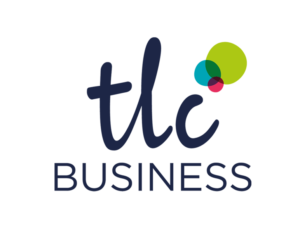Getting your marketing organised
One thing that constantly surprises us when helping SMEs with their marketing, is how few have got in place any sort of system to manage their marketing and keep track of clients, prospects and contacts.
If there is one piece of advice we’d give to SMEs around marketing, it would be to get a marketing plan in place, if I could give two pieces of advice, we’d also recommend that they get in place a system to manage their marketing –such a system is often called a CRM or Customer Relationship Management tool.
With businesses always looking to get as much value from their marketing investment as possible, a CRM is a fantastically effective tool that allows marketers to control, measure, manage and monitor the various marketing activities they undertake; giving them the information they need to use their resources most efficiently.
On countless occasions we come across businesses that have undertaken a variety of marketing campaigns, which have never been followed up and the contacts lost. A CRM system will capture prospect information, as well as that of existing customers, giving your business a comprehensive history of communications with those individuals, allowing you to improve your customer service as well as that of your marketing’s effectiveness.
So why, if we don’t sell CRM systems, are we rhapsodising about them so much?
Well, firstly, experience has shown that it is often impossible to be efficient without one in place. Secondly, there are some pretty impressive statistics to support its introduction into a business:
Benchmark studies from IDC (International Data Corporation) reveal that CRM applications account for:
- Revenue increases of up to 41% per sales person
- Decreased sales cycles of over 24%
- Lead conversion rate improvements of over 300%
- Customer Retention improvements of 27%
- Decreased sales and marketing costs of 23%
- Improved profit margins of over 2%
Business Link has identified a range of benefits connected to these statistics, which provide compelling reasons to introduce CRM software to your business.
They also provide a case study about the successful integration of CRM into a small business.
The limitation of a CRM is that its effectiveness is restricted by the quality of the information put into it. If you and your team are not committed to inputting the appropriate information, a CRM is pointless. But populated it with relevant and accurate data and a CRM is a business’ best friend.
Hopefully, we’ve now convinced you of the importance of using a CRM in your business. We thought it would be helpful to direct you to some of the ones out there. It is important that you choose one that is right for your needs. There are a multitude of options and often the variety can be daunting.
We use a CRM called Sugar CRM and have opted for the opensource version. It suits our needs but you might want something different.
Below are a few options we have come across and are being used successfully by our clients.
- Salesforce
- Sugar CRM – Professional
- Sugar CRM – Open source
- M-Files – Document Management with CRM capacity
- Sage Act
- Goldmine
- High Rise
- Zoho
Most will let you have a free trial before you buy, so have a look at them all and choose the one for you.
So if you are thinking about what Santa could get your business this Christmas, make sure a CRM is on your list.
If you’ve had experiences with these or any other CRMs, good or bad, we’d love to hear from you and your thoughts.












Leave a Reply
Want to join the discussion?Feel free to contribute!